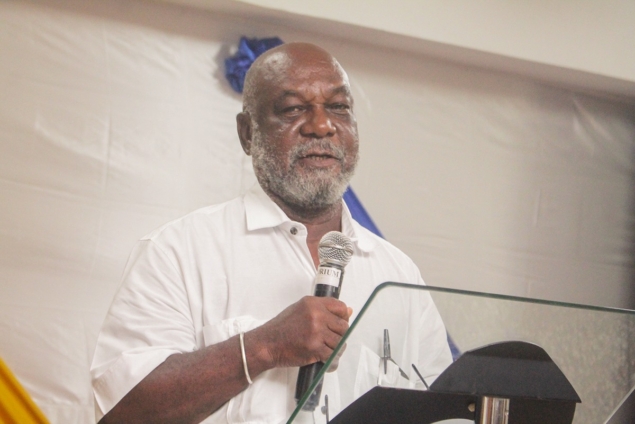Journalism Professor Kwame Karikari says the media has the right to exercise its discretion and blackout any newsmaker or public official whose actions are deemed disrespectful to the media profession.
According to him, the 1992 Constitution guarantees the independence of the media, describing it as offensive to the constitutional provisions should newsmakers, particularly, politicians assault a media practitioner.
Professor Karikari contended that if a public official, especially a minister, engages in behaviour that disrespects the principles of journalism and fails to rectify such actions, the media is well within its rights to impose a blackout.
He argued that this approach serves as a powerful tool for the media to protect its integrity and uphold journalistic standards.
"For a minister to behave like that to any sector of the media and without rectifying that action, then the politician deserves to be simply blacked out," Professor Karikari said on JoyNews' PM Express on Monday.
He drew attention to the fact that in the current media landscape, politicians can boycott specific media houses and not invite certain media teams to their programmes. Therefore, he argued, the media should also have the right to reciprocate such actions.
Last two weeks, the Ghana Journalists Association (GJA) imposed a total media blackout on the Fisheries and Aquaculture Development Minister, Mavis Hawa Koomson.
The GJA directed journalists to avoid covering any activities involving the Awutu Senya East MP following an attack on a journalist allegedly by the MP's thugs during the NPP’s parliamentary aspirants’ vetting in Cape Coast.
The Yendi MP, Farouk Aliu Mahama, has also been included in this total blackout after he was reported to have assaulted a Citi FM reporter during the NPP Parliamentary elections.
Although some have criticised the strategy as one which is not in the public interest, Prof Karikari clarified that while media blackout of key institutions like Parliament and the Presidency would be highly inappropriate, individual politicians who engage in disrespectful behavior towards the media should face the consequences of being blacked out.
"When you assault a journalist, you are telling the media 'We don’t want you,' so what business does the media have rendering a service that you claim you do not want? So for me, the media blacking out anyone is within their right."
On the same show, the Information Minister, Kojo Oppong Nkrumah urged the GJA to ensure that thorough investigations are carried out before the blackout policy is implemented.
He noted that although the directive is a laudable one, it can be abused if left unchecked.
Latest Stories
-
524 Diasporan Africans granted Ghanaian citizenship in ceremony
49 seconds -
Mahama urges Afram Plains North residents to avoid ‘skirt and blouse’ voting
3 mins -
Asantehene receives more 19th century gold ornament and regalia
10 mins -
Hohoe Ghana Blind Union organises training for members ahead of Election 2024
16 mins -
Alan Kyerematen reveals his future plans for Ghanaian Health professionals
17 mins -
AAIN empowers women and small enterprises in Upper East Region through SHINE project
18 mins -
Akufo-Addo leads nationwide commissioning of 80 educational projects
25 mins -
Ghana and Seychelles strengthen bilateral ties with focus on key sectors
55 mins -
National Elections Security Taskforce meets political party heads ahead of December elections
59 mins -
Samsung’s AI-powered innovations honored by Consumer Technology Association
1 hour -
Fugitive Zambian MP arrested in Zimbabwe – minister
2 hours -
Town council in Canada at standstill over refusal to take King’s oath
2 hours -
Trump picks Pam Bondi as attorney general after Matt Gaetz withdraws
2 hours -
Providing quality seeds to farmers is first step towards achieving food security in Ghana
2 hours -
Thousands of PayPal customers report brief outage
2 hours

